Search Results
Showing results 161 to 180 of 392

Exploring Earth: Paper Mountains
Source Institutions
In this activity, learners explore in what ways the shape of the land and the pull of gravity influence how water moves over Earth.
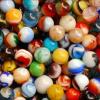
Marble Challenge
Source Institutions
In this physics activity (page 6 of the PDF), learners will try to keep a marble in a bottomless cup without touching the marble inside.
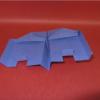
Glider
Source Institutions
In this activity, learners construct a paper glider to experiment with aerodynamic forces.
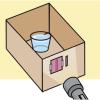
Bending Light
Source Institutions
In this optics activity, learners make a lens and explore how the eye manipulates the light that enters it.

Dancing Spaghetti
Source Institutions
In this chemistry activity, learners use spaghetti to explore density and chemical reactions.

Production of Oxygen
Source Institutions
In this chemistry activity, learners use yeast and hydrogen peroxide to generate a gas (oxygen) and test some of its properties.

Bernoulli Levitator
Source Institutions
Demonstrate the Bernoulli Principle using simple materials on a small or large scale.

Shape it Up
Source Institutions
In this online activity, learners see simulations of how processes shape the Earth, and see estimates of how long these processes take.
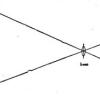
Bring it into Focus
Source Institutions
In this activity (page 2 of PDF), learners play with a lens and a piece of paper to focus an image on the paper. Learners look at different things, and see how the lenses affect the image.
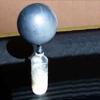
Yeast-Air Balloons
Source Institutions
In this activity, learners make a yeast-air balloon to get a better idea of what yeast can do. Learners discover that the purpose of leaveners like yeast is to produce the gas that makes bread rise.

Production of Hydrogen
Source Institutions
In this chemistry activity, learners use mossy zinc (or a galvanized nail) and hydrochloric acid to generate hydrogen gas and test some of its properties.

Cafe Wall Illusion
Source Institutions
In this fun and interactive online exhibit, the straight lines of a tile wall appear to curve. The learner moves the rows of tiles and changes the color of the grout to achieve the intriguing effect.
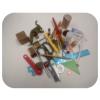
Guess My Rule
Source Institutions
In this simple game, learners start to understand how to sort and categorize objects by trying to guess the connection between three items that someone else has chosen.
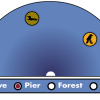
Place Matters: How Sound Changes Due to Environment
Source Institutions
This is an online simulation of how sound changes due to environment. How does place--like a cave, a pier, or a forest--affect certain sounds?
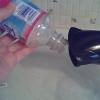
Air Pressure
Source Institutions
In this experiment, learners use a blow dryer and water bottle to observe and record changes in air pressure caused by changes in temperature.

Exploding Baggie
Source Institutions
In this activity, young learners will experiment with a basic chemical reaction and observe what happens when gas gets trapped! Activity includes step-by-step instructions, safety notes and more.
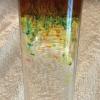
Fireworks in a Glass
Source Institutions
In this activity, learners use water, oil, and food coloring to observe a chemical reaction that creates a shower of colors inside of a glass.
Team Up: Fun With Division
Source Institutions
In this activity, learners will divide into teams or groups of equal size. “How many teams of three can we make?” “We need an equal number of children at each of the four computers.
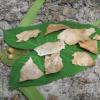
Discovery Time: Turtles
Source Institutions
In this activity, young learners (2 years and up) explore turtle basic adaptations and biology. Turtle external anatomy is explored by "building" a turtle with a nature collage.
Globby Gooey Gak
Source Institutions
In this activity, learners concoct some stretchy green goo called Gak. This activity will introduce learners to polymers, chemical reactions, and how scientists invent new materials.
